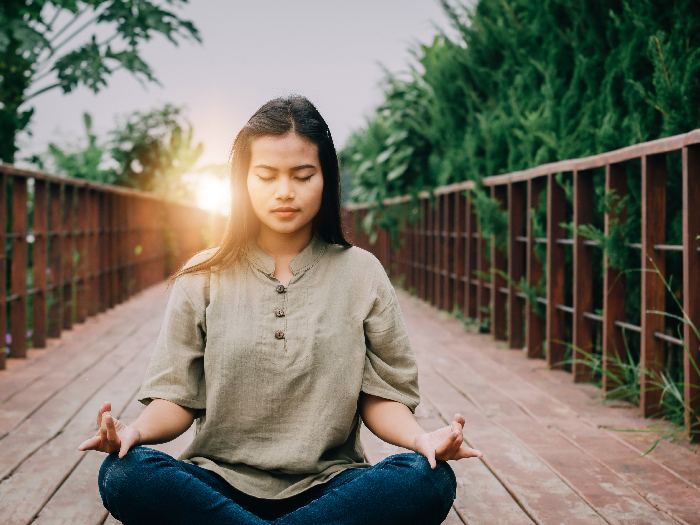In a world where the stress of everyday living demands so much out of you, it is vital to take care of your body, mind, and soul from time to time. Self-care, as it is popularly known, is a brilliant path to self-awareness and improvement. If done consistently, it helps you be more productive, creative, and confident. Additionally, it helps you build healthier and stronger relationships, maintain proper work-life balance, communicate constructively, and take better decisions.
Amidst this pandemic, having a proper self-care routine in place is perhaps more important than ever. We all find ourselves in an extended state of self-quarantine right now that can be quite unsettling and have an unpleasant impact on our mental health. Here, we share a few self-care tips from exercising and meditating to practicing self-compassion that will surely help you maintain sound physical, emotional, and mental well-being, especially during these tough times.
What is Self-Care?
Self-care is one of those terms that is used around a lot but seldom understood. According to the Oxford dictionary, self-care is the practice of taking action towards preserving and improving one’s own health. It may come across as a simple concept, but it is something that people often ignore. It is not an activity that we force on ourselves or dislike doing. In fact, it is quite the opposite. It is not a selfish act either. It is the act of taking care of ourselves, so as to not only understand our needs but also be able to take care of the people around us. [1]
Like American author, Parker Palmer in his book, Let Your Life Speak: Listening for the Voice of Vocation, said, “Self-care is never a selfish act. Anytime we can listen to our true self and give the care it requires, we do it not only for ourselves but for the many others whose lives we touch.” So what are the different ways in which we can take care of ourselves? Let us find out. [2]

It is important to take care of your body, mind, and soul every day. Picture Credit: Shutterstock
Different Self-Care Practices
Let us take a look at the different self-care practices given below in detail.
Regular Exercise
Exercising regularly not only helps in improving your physical health, losing weight, building muscle mass, or trimming down the waistline, but also positively helps in improving your mood, relieving stress, reducing anxiety, and depression. In short, it has a profound impact on your mental and emotional wellbeing. According to the Australian Government Department of Health, adults should take up any form of moderate to intensive physical activity for at least 30 minutes on most or all days of the week. So, try going for a walk or a light jog every day. [3] [4]
Healthy Diet
It is a known fact that the food we eat impacts our physical health. It helps manage body weight and further reduces the risk of chronic diseases. However, research published by the Harvard Medical School highlights how food affects the structure and function of the brain and, eventually, our mood. Our sleep, appetite, and moods among other things are all regulated by a neurotransmitter in the brain known as serotonin. According to the research, about 95% of serotonin is created in our gastrointestinal tract, which is lined with millions of neurons. This only goes to show that a sound and healthy digestive system will have a positive impact on your mood and emotions. That is why having a healthy and balanced diet regularly is key to self-care. Turn cooking into a fun family activity. This will also help you spend more time and bond with your loved ones. [5]
Mindful Meditation
The act of mindful meditation requires you to sit comfortably and focus on your breathing, whilst bringing your attention to the present moment without worrying about the past or the future. Research shows that mindful meditation helps ease anxiety and stress in an effective manner. According to a 2011 study published in the Clinical Psychological Review, mindful meditation has a positive psychological effect, which further reduces our emotional reactivity and improves our overall behavior. Releasing any tension that your body is holding on to will allow you to be happy and spread joy around you. [6]
Sound Sleep
Sleep deprivation can cause frequent mental lapses and a constant feeling of exhaustion. It will also increase your level of stress and anxiety as well as further contribute to your physical health issues. According to a paper published by Harvard Medical School, sleep is both the cause and effect of psychological and psychiatric disorders. Sleep deprivation tends to have a negative impact on the stress hormones and the neurotransmitters, which further disrupts thinking and emotional wellbeing. That is why it is recommended to improve one’s sleep cycle and habit by bringing about some lifestyle changes and adopting certain relaxation techniques. You could also try simple things like banishing phones, TVs, and laptops from your bedroom and making it a screen-free zone. This will help you rest and unwind like never before. [7]
Gratitude Journal
Research has shown that being grateful and thankful for the things in your life can lead to your psychological and emotional wellbeing. Gratitude can make people lead fuller and happier lives, better their relationships, and may also help impede depressive and suicidal thoughts. Make journaling a daily habit. By jotting down things you are grateful for, you will be able to appreciate the moments, experiences, and people in your life more and operate from a place of abundance. You can also try writing down things you are grateful for in little slips of paper and put them in a jar every day. You can revisit them after a month. This will make you feel good and instill in you a feeling of love and belonging [8]
Regular Breaks and Time-outs
The best way to avoid being overworked and feeling completely burned out is by taking occasional breaks. Taking regular breaks will refresh your mind, make you feel rejuvenated, and help you become more creative. This also helps bring about a work-life balance. Once in a while, it is good to have a change of scene or get a change of pace. So take a vacation whenever you can, or take half an hour breaks during your stressful working hours. During this pandemic, whenever you feel overwhelmed, take a break and do what brings you peace – meditate, play with your pet, read your favorite book, indulge in art therapy or listen to some soothing music. [9]

Practising mindfulness is a good self-care habit. Photo Credit: Shutterstock
Self-Compassion
When things go wrong, we often find it easier to be tough on ourselves and do it more often than we realize. We tend to blame ourselves very easily for doing something we are not proud of. But to lead a peaceful and happy life, it is important to forgive ourselves, accept all our perceived mistakes, and be kind, and that is where self-compassion plays an important role. It then becomes important to be mindful of our self-deprecating tendencies and approach them by being more kind and patient with ourselves. Being self-compassionate is thus a vital step in the process of self-care. Meditation and journaling can help with that. [10]
Declutter
Clutter is considered as an energy drain and has quite a negative impact on our emotional wellbeing. A cluttered home is perceived to be a stressful home. After all, it is an overabundance of possessions that creates an utter mess in our living spaces and eventually our lives. One feels more relaxed, productive, and creative in a decluttered environment. It is thus important to become the Marie Kondo of our lives and declutter every once in a while. Adopting minimalism is a positive outlook and will not only leave you de-stressed but also help you value the little things in life and be more grateful. [11]
Acts of Kindness
Research shows that random acts of kindness boost the morale not only of the person doing the act of kindness but also the person at the receiving end. So, maybe, open the door for a stranger, help an old man cross the street, support the kids in your locality with their raffle money, adopt a homeless pet, and do the things you can to spread a little joy and cheer around. [12]
Seek Therapy
Sometimes we may have some distorted thoughts that may make the act of self-love and self-care difficult. Some may feel they are unworthy of love due to some trauma or unpleasant experience that they must have suffered in the past. In such cases, therapy can really help in removing these barriers and improve one’s overall wellbeing. [13]
